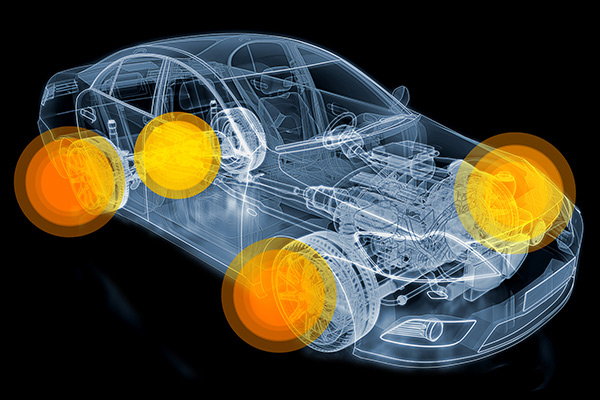Hmm. Purr. Vroom. Modern engineering has made driving a car easier on the ears than ever.
But there are some car noises you don’t want to hear, because they can signal trouble. Every once in a while, roll down the windows and start listening for “any sound that is odd,” says Mike Peth, director of technical training at Ohio Technical College in Cleveland. “You know your car, so you can often pick up something that may become a problem.”
1. A sound like a coin in a clothes dryer
What it means: If you hear something rattling around inside a wheel at low speeds (and then stops as you drive faster) it could be a loose lug nut inside a hub cap. That might mean your wheel wasn’t tightened properly the last time it was removed and replaced. Take your car to a mechanic ASAP.
2. Brakes squealing, grinding or growling
What it means: If you hear a squealing noise, your brake pads or shoes might be nearing the end of their service life and must be replaced. If they grind or growl, get your brakes checked out immediately. It could be a sign that pads are so worn that metal is touching metal—a serious problem that could affect braking efficiency.
3. A finger-snapping, popping or clicking sound when you turn
What it means: If you have a front-wheel-drive or all-wheel drive vehicle and hear this sound when you turn or corner (but the noise stops when you steer straight) one or both of the constant velocity (CV) joints on your front axle could need replacing.
4. A rhythmic squeak that speeds up as you accelerate
What it means: If you have rear-wheel or four-wheel drive and hear this sound, the culprit could be the universal joint (U-joint), which are found in pairs and are components of the driveshaft. Get it checked by a mechanic immediately.
5. A howling, whining or even “singing”
What it means: This is usually a sign that your bearings—tiny metal balls that help parts rotate smoothly—aren’t doing their job. But which ones? If you have front-wheel drive, and the sound changes as you turn left, right and back again, it’s likely your front-wheel bearings; a gradually growing, steady howl signals rear-wheel bearings. If you have rear-wheel drive and the whine gets louder as you accelerate, your differential, which allows your wheels to spin at different rates when needed, could be leaking fluid. Get it fixed immediately.
6. Rhythmic clunking, tapping or banging from under the hood
What it means: There could be a serious problem with valves, connecting rods or pistons. Get to a mechanic ASAP.
7. Squealing under the hood at start-up or when accelerating
What it means: This could come from worn or loose accessory belts that drive things like your power steering pump, air conditioner compressor and alternator. With newer cars, it may point to the serpentine belt, which drives multiple accessories at once, and is relatively easy and cheap to fix.

